
Davos and diplomacy: a look back at Shinzo Abe’s relations with Switzerland
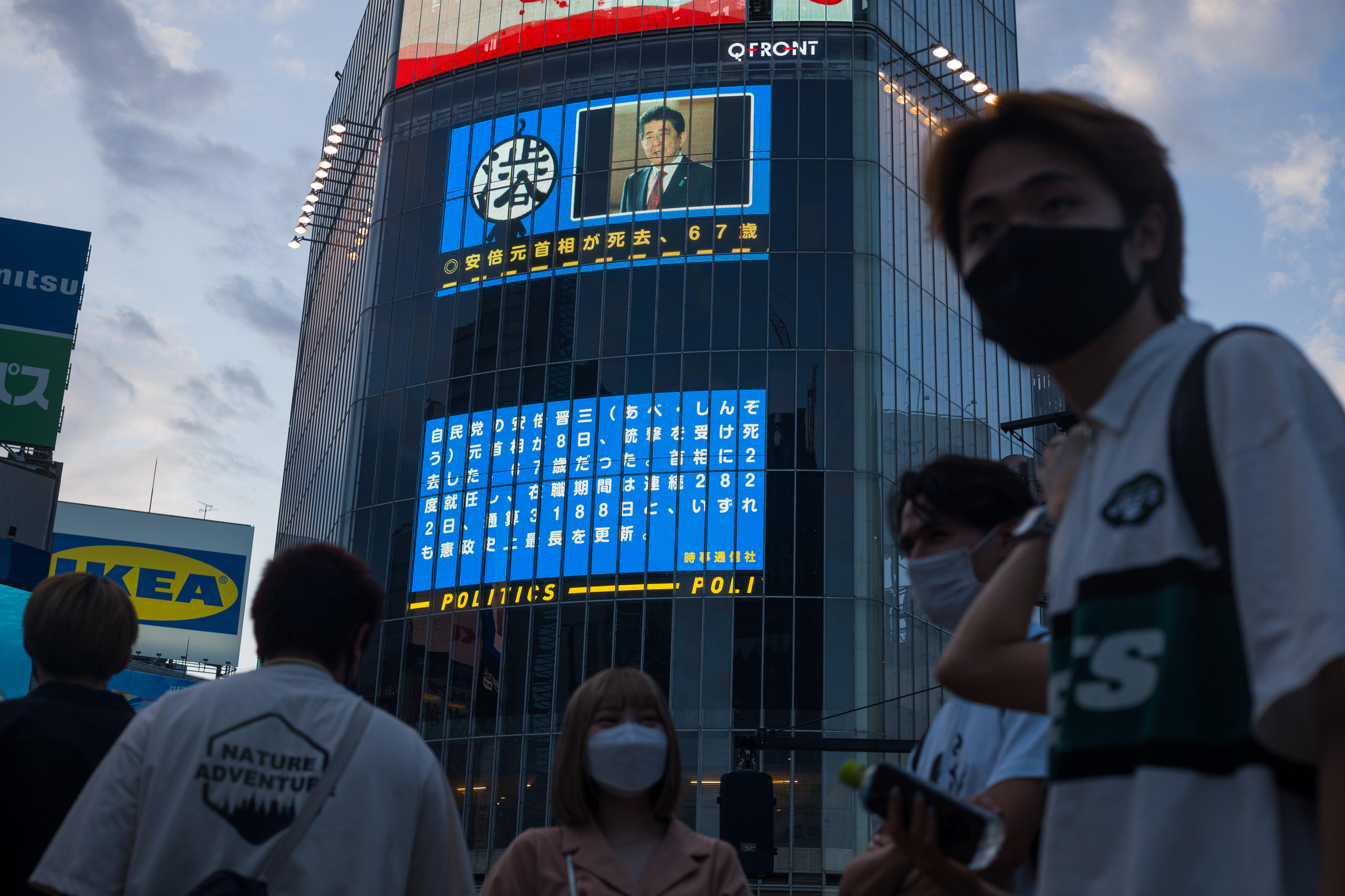
Shinzo Abe, who was Japan’s longest-serving prime minister, was assassinated on Friday while campaigning ahead of national elections. The sudden death of the former leader has sent shockwaves around the world, as well as in Switzerland, a country he visited several times.
Abe, who was 67, served as Japanese premier from 2006 to 2007 and again from 2012 to 2020. During his second stint, he notably sought to strengthen the country’s national defense and revitalise the domestic economy through his “Abenomics” approach – a set of aggressive monetary and fiscal policies.
‘Deeply saddened’
Swiss President Ignazio Cassis posted on Twitter on Friday that he was “deeply saddened by the death of former Prime Minister Shinzo Abe”. Cassis also condemned the assassination, and sent “sincere condolences to his family and loved ones and the Japanese people”.
Tragic news from #JapanExternal link: I am deeply saddened by the death of former Prime Minister Shinzo Abe after he was shot today. I strongly condemn this terrible assassination. My sincere condolences to his family and loved ones and the Japanese people.
— Ignazio Cassis (@ignaziocassis) July 8, 2022External link
In its report on the event, the Neue Zürcher Zeitung newspaper wroteExternal link on Friday that “Abe not only called for doubling the budget of the Self-Defense Forces, but also made it clear he would support the defense of Taiwan alongside the United States in the event of an invasion by China”.
“With Abe’s death, Japan’s right-wing has lost a prominent advocate for a tough stance towards China,” the paper’s correspondent in Tokyo wrote.
The NZZ also noted that Abe had focused on revising Article 9 of the Constitution, which prohibits Japan from developing its military force. “This may put the brakes on new attempts at a revision,” it said.
The Tages-Anzeiger meanwhile pointed outExternal link that while Abenomics has led to an unequal distribution of profits in recent years, “it’s true that under Abe’s leadership, the world’s third-largest economy experienced its longest period of growth in years.”
Diplomacy in Switzerland
Abe visited Switzerland several times.
In 2019, he addressed the World Economic Forum’s (WEF) annual conference in Davos, where he spoke about the growth potential of digitalisation and data, and stressed the need for better cross-border data distribution.
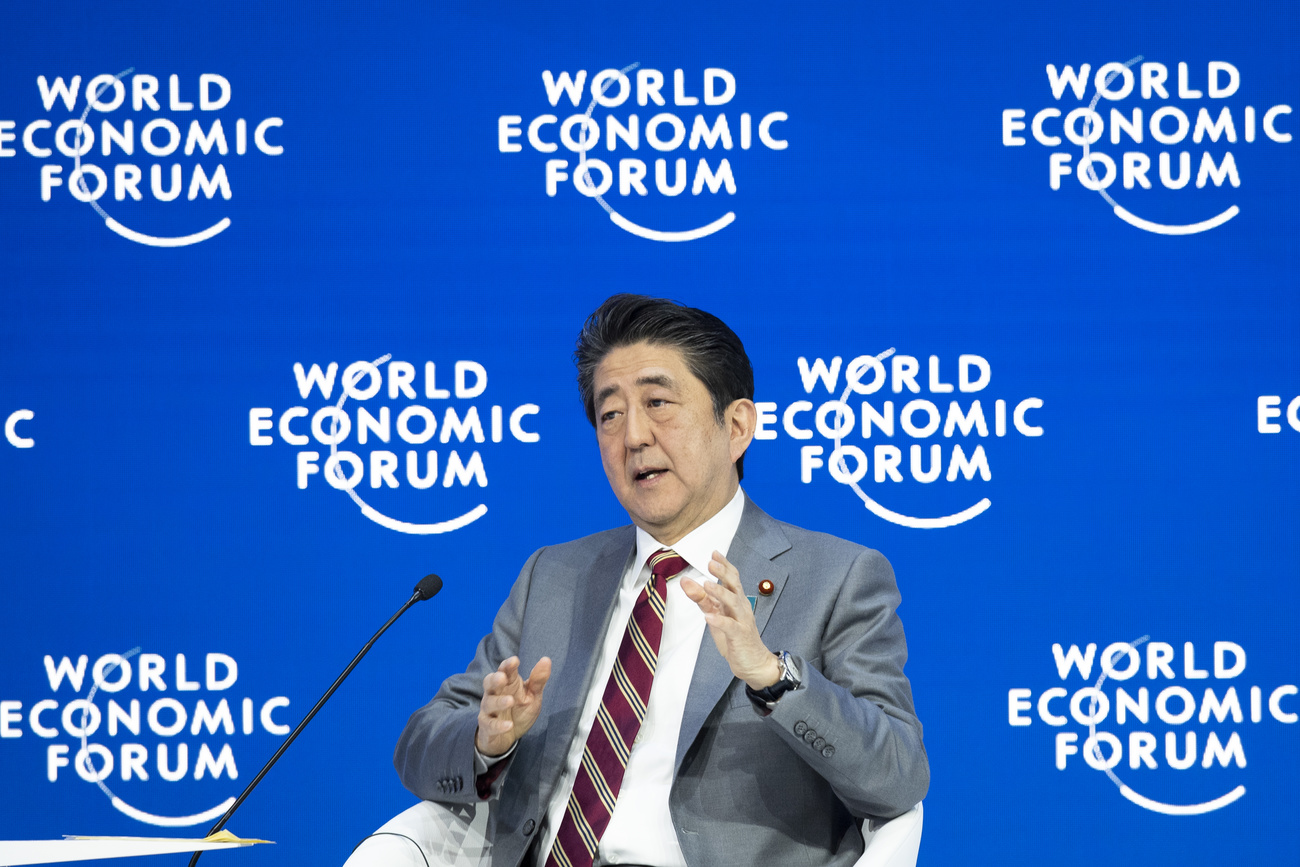
Before the conference, Abe tweeted a picture of the view from the train window on his way from Zurich to Davos.
ダボス会議に出席するため、早朝にチューリヒ中央駅を出発しました。車窓の外は一面の雪景色です。 pic.twitter.com/6sdY8xKHwgExternal link
— 安倍晋三 (@AbeShinzo) January 23, 2019External link
In 2014, Abe had also been the first Japanese prime minister to deliver a keynote speech at the opening session of the WEF in Davos. On that occasion, he also held talks with WEF founder and President Klaus Schwab.
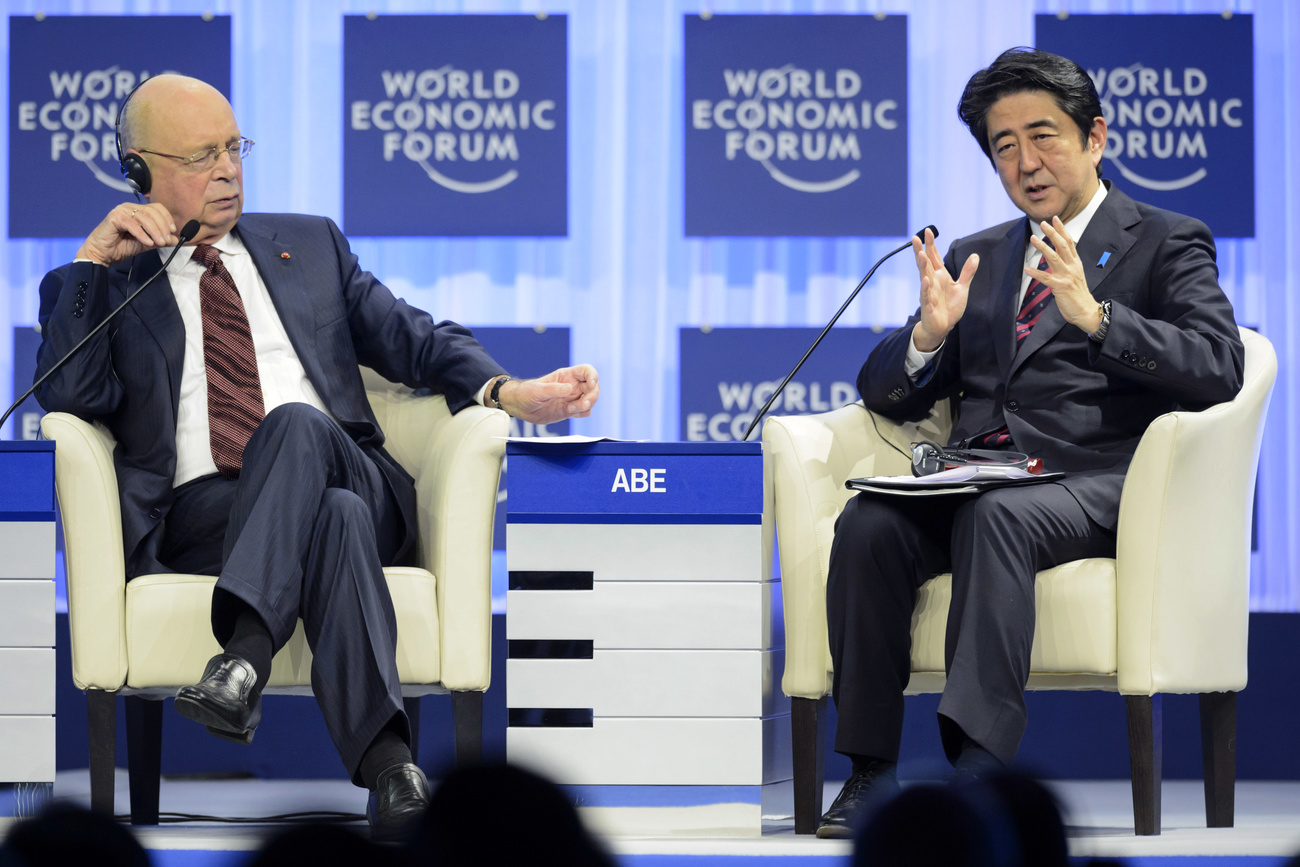
Bilateral talks
Swiss ministers have also visited Japan in the past to hold bilateral talks with Abe.
In 2019, Swiss President Ueli Maurer visited Japan on the occasion of the G20 Finance Ministers and Central Bank Governors Meeting, held in Fukuoka. During a talk with Abe, Maurer reiterated Switzerland’s interest in updating the bilateral Free Trade and Partnership AgreementExternal link with Japan, which entered into force in 2009.
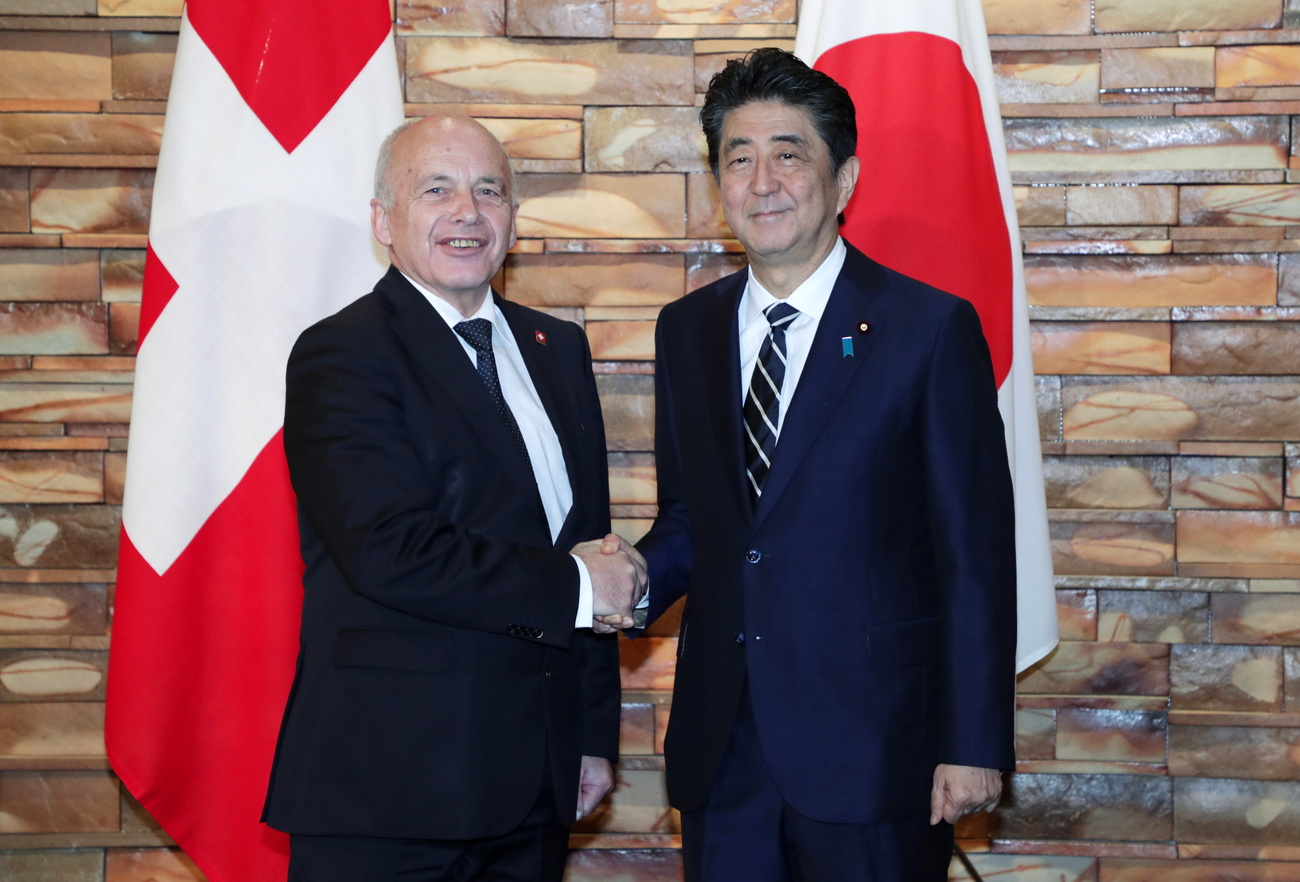
In 2018, Swiss President Alain Berset held bilateral talks with Abe in Tokyo, where the pair signed a declaration of intent to strengthen collaboration between the Swiss National Science Foundation and its Japanese counterpart.
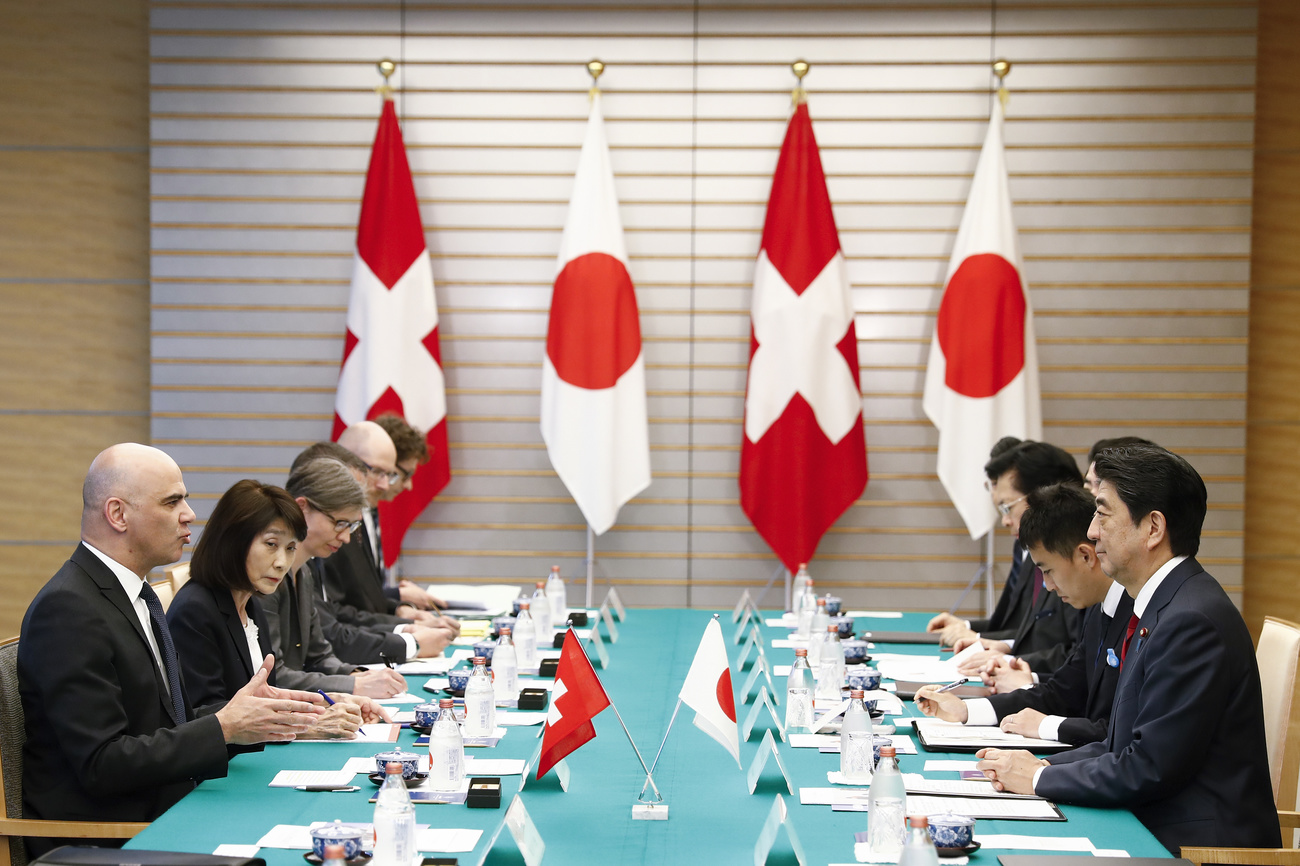
And in 2014, to mark the 150th anniversary of the establishment of diplomatic relations between Japan and Switzerland, Swiss President Didier Burkhalter and Abe signed an “Open Skies Agreement” in Tokyo to promote increased travel and trade between the countries.
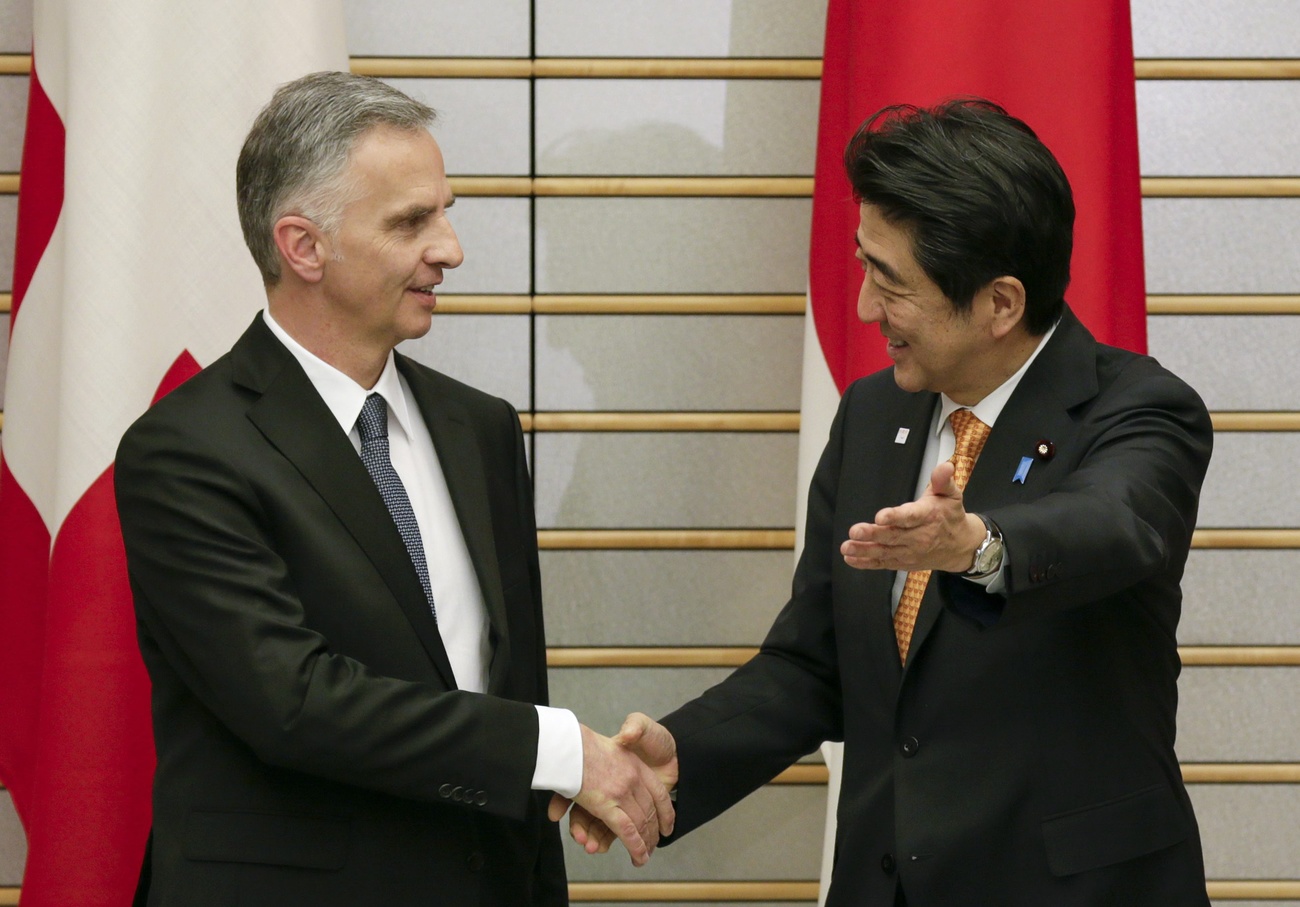
When Abe announced his resignation for the second time in 2020, it was widely reported in the Swiss media: the NZZ, for example, praised his diplomatic ability, sayingExternal link he was “one of the few leaders who had a great relationship with US President Donald Trump”.
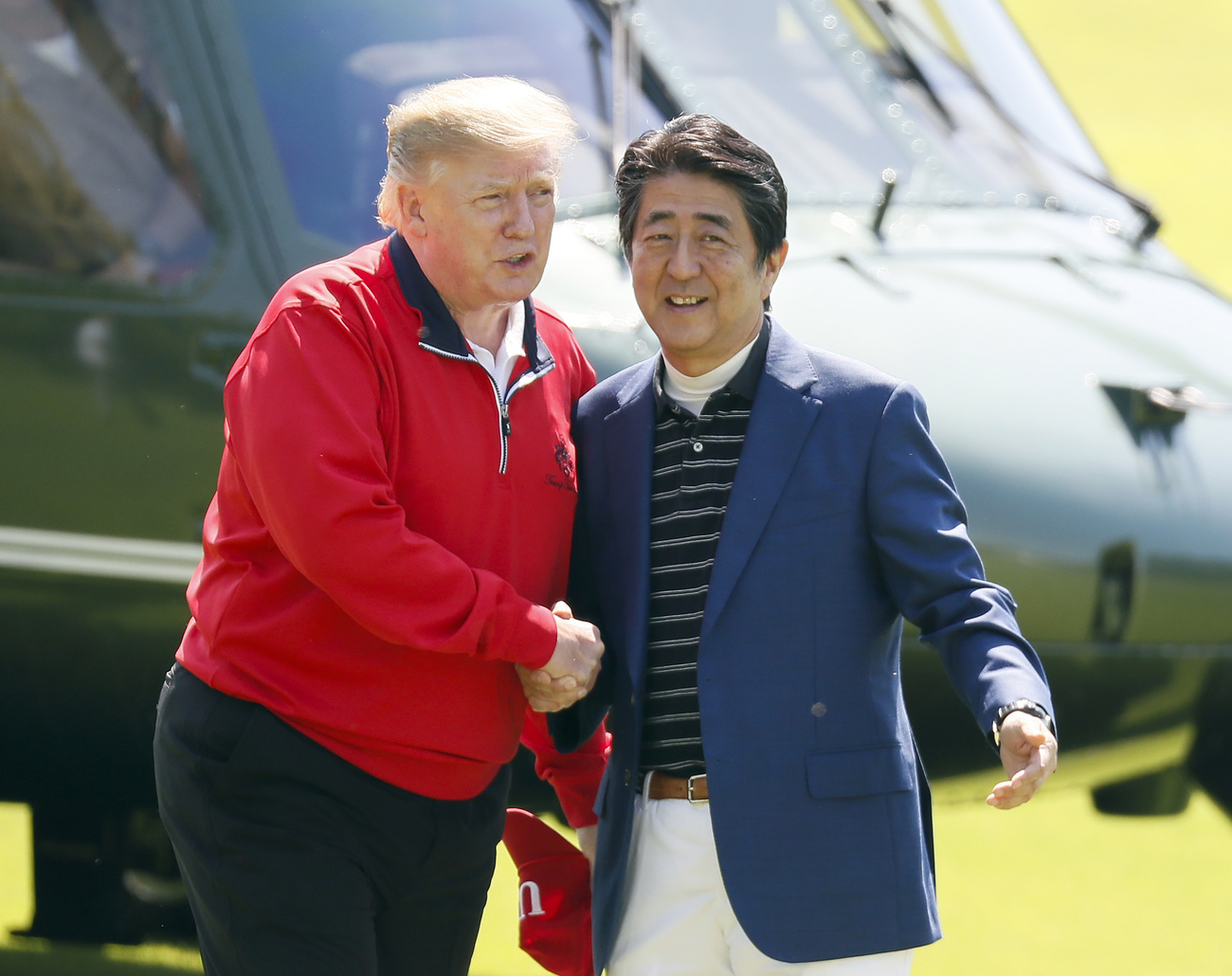

In compliance with the JTI standards
More: SWI swissinfo.ch certified by the Journalism Trust Initiative






























You can find an overview of ongoing debates with our journalists here . Please join us!
If you want to start a conversation about a topic raised in this article or want to report factual errors, email us at english@swissinfo.ch.